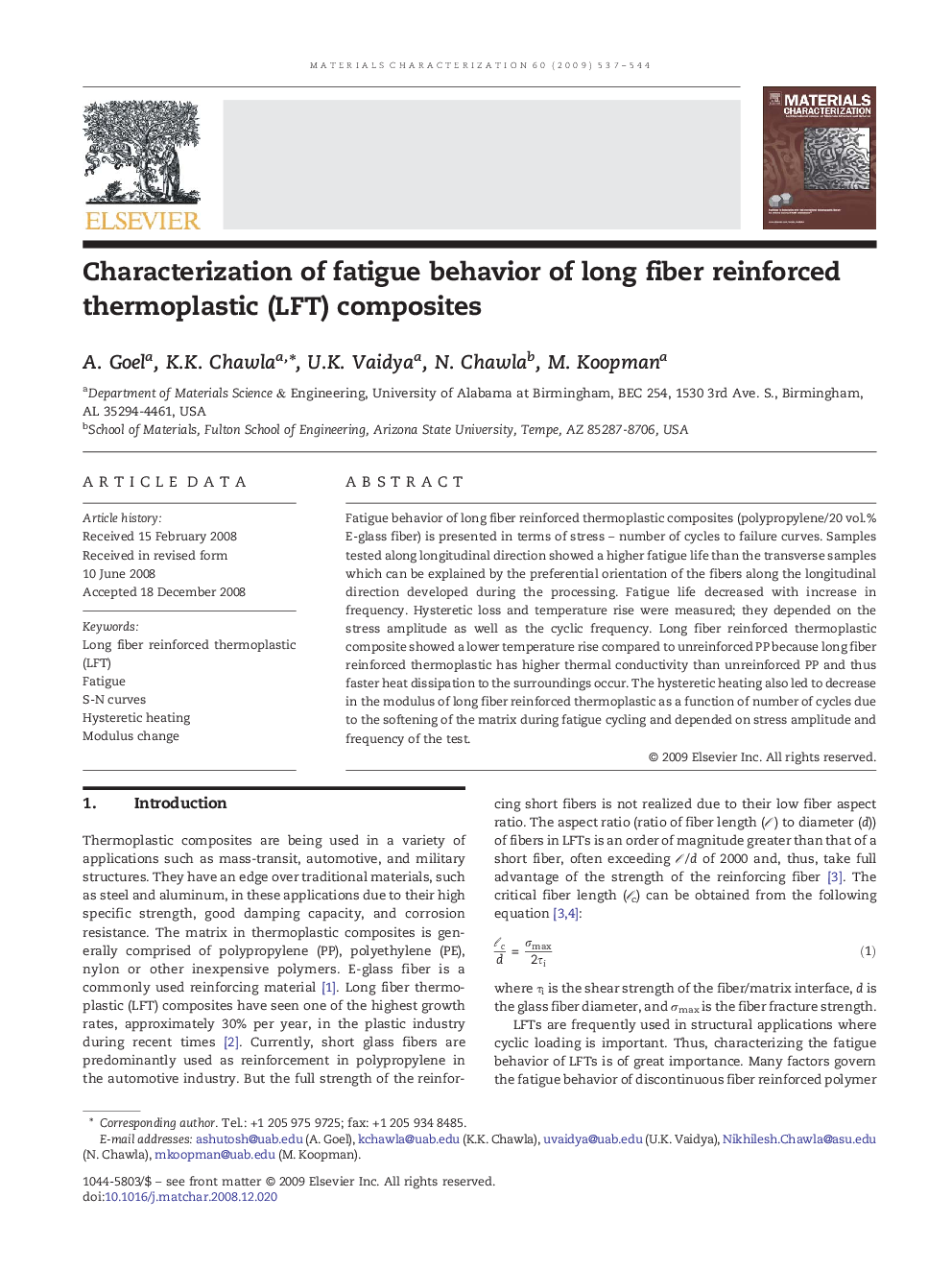| Article ID | Journal | Published Year | Pages | File Type |
|---|---|---|---|---|
| 1571861 | Materials Characterization | 2009 | 8 Pages |
Fatigue behavior of long fiber reinforced thermoplastic composites (polypropylene/20 vol.% E-glass fiber) is presented in terms of stress – number of cycles to failure curves. Samples tested along longitudinal direction showed a higher fatigue life than the transverse samples which can be explained by the preferential orientation of the fibers along the longitudinal direction developed during the processing. Fatigue life decreased with increase in frequency. Hysteretic loss and temperature rise were measured; they depended on the stress amplitude as well as the cyclic frequency. Long fiber reinforced thermoplastic composite showed a lower temperature rise compared to unreinforced PP because long fiber reinforced thermoplastic has higher thermal conductivity than unreinforced PP and thus faster heat dissipation to the surroundings occur. The hysteretic heating also led to decrease in the modulus of long fiber reinforced thermoplastic as a function of number of cycles due to the softening of the matrix during fatigue cycling and depended on stress amplitude and frequency of the test.
